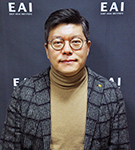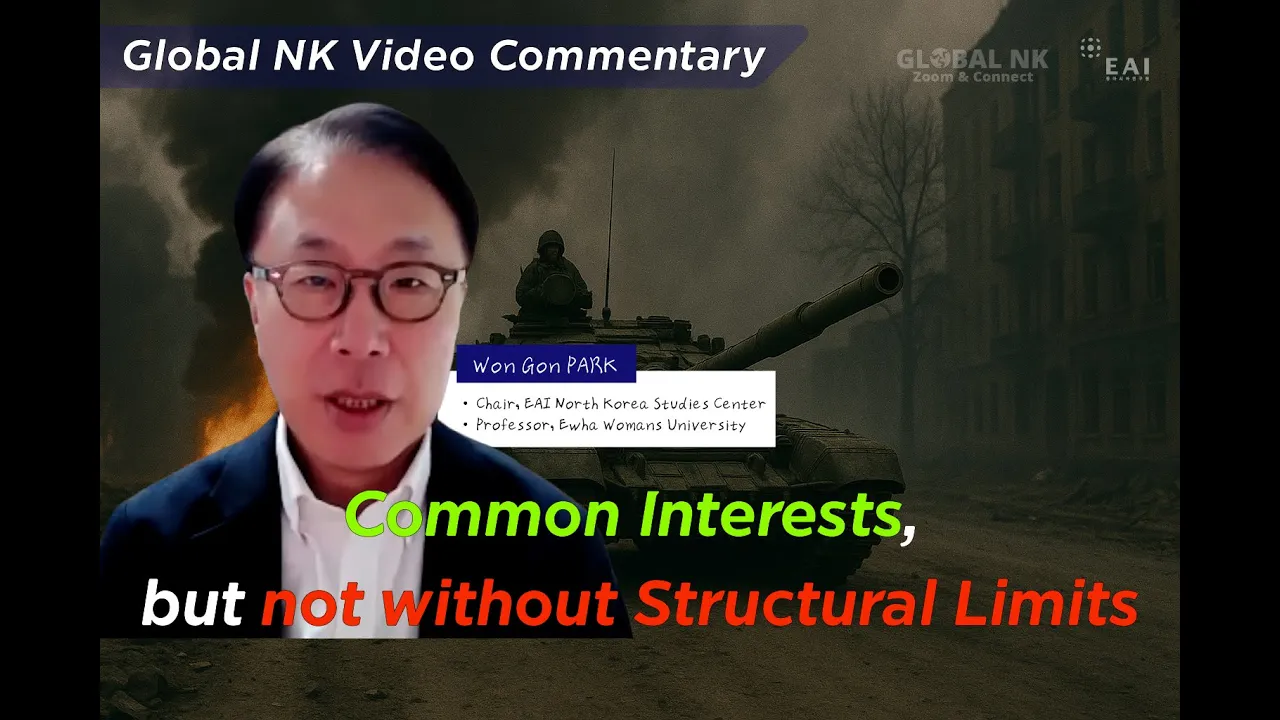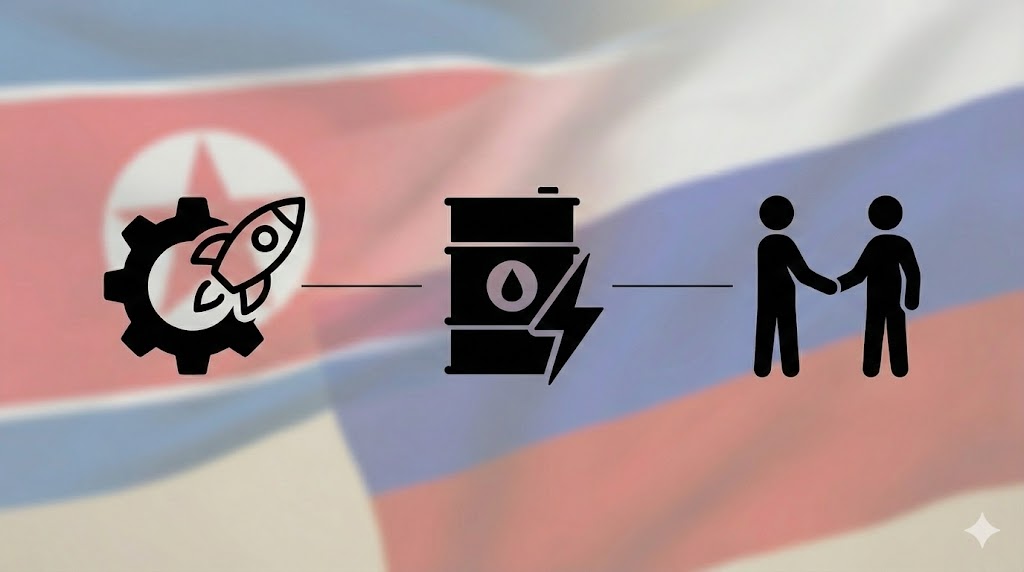Following the Biden administration’s announcement of the key points on the North Korea Policy Review, the ROK-U.S. summit was held on May 21, 2021. Discussions and policy coordination between the U.S. and South Korea on resolving the North Korean nuclear issue and establishing permanent peace on the Korean Peninsula have been visualized. The U.S. claims that it strives to locate the building blocks towards the resolution of the North Korean nuclear issue through a practical and step-by-step approach and overcome the problems of past approaches undertaken by the Obama and Trump administrations. The South Korean government has shown its willingness to maintain its achievements in resolving the North Korean nuclear issue in 2018. As a result, the two leaders expressed their intention to resolve the North Korean nuclear issue through diplomatic means based on the framework of the Panmunjom Declaration and the Singapore Agreement in the ROK-U.S. joint statement.
At present, the Biden administration's Policy Review on North Korea remains unknown and it is unclear whether it has plans to announce it in the future. However, an examination of U.S diplomatic efforts towards South Korea at the ROK-U.S. summit shows that the U.S. has undertaken a meticulous approach; it strives to calculate the interests of the U.S. and its counterparts and pursue common interests. It is expected that the U.S. will assume a practical and step-by-step approach, accommodating the perspectives of its allies and the international community and coordinating the interests of both North Korea and the U.S. North Korea has so far endured a wait-and-see attitude to probe into the full extent of the Biden administration's strategy toward North Korea. What are the conditions for the resumption of U.S.-North Korea negotiations in the future and how likely are the talks to resume?
The possibility and the conditions necessary for the resumption of U.S.-North Korea talks
North Korea clarified the conditions for the resumption of U.S.-North Korean dialogue last year through a statement issued by Kim Yo Jong on July 10. The conditions were announced, undeniably, during the Trump era but they can nonetheless be referred to as conditions necessary for potential dialogue given the lack of other statements that clearly identify the conditions. Kim Yo Jong reinforced the necessity for trust-building between North Korea and the U.S. accounting for state-to-state relation between North Korea and U.S., as North Korea corresponds with not only President Trump, but also the U.S. In this regard, she identifies the withdrawal of hostile policy towards North Korea as a condition for trust-building. She has also made it clear that there is little meaning in lifting economic sanctions in regards to the withdrawal of hostile policy against North Korea. This means that unless lifting sanctions signals the withdrawal of hostile policy against North Korea, economic benefits themselves are of little importance. North Korea is on the watch for what the U.S. has in mind for the regime guarantee as a condition of exchange for security vs. security and what it is willing to offer.
North Korea’s position is linked to the breakdown of the Hanoi Summit on 28 February 2019. Stephen Biegun, then Special Representative for North Korea, discussed preparations for the Hanoi negotiations during a speech at Stanford University on January 31, 2019. Upon the Singapore Summit, the U.S. has taken a stance of cautious optimism over the resolution of the North Korean nuclear issue as not only has there been a relatively consistent channel of dialogue between the U.S. and North Korea, but has also been interest and support from the international community on the North Korean nuclear issue. The U.S. has been pursuant of the complete and verifiable dismantlement of North Korea’s nuclear weapons, means of transportation, and even all WMDs; North Korea vowed to first disable the Yongbyun complex and expand the dismantle process to plutonium and uranium production reactors. According to Biegun, North Korea claimed that it would fully declare its nuclear program at a certain point in time before its complete dismantlement, and that the U.S. is contemplating on an appropriate reward for it.
The problem is that Biegun's deal was completely ignored in the White House just before the Hanoi talks, as indicated in Bolton's memoirs. Eventually, the Hanoi talks broke down. It is therefore clear that such steps should not be repeated in the future for U.S.-North Korea negotiations to resume. North Korea has lost faith in the special envoy to the North, who was unable to speak for the U.S. president, and has also lost its trust in the South Korean government, which had assumed a mediating role between the U.S. and North Korea. Considering the conditions for the resumption of U.S.-North Korean dialogue from North Korea's perspective, the power of the special envoy to North Korea and strengthening South Korea's negotiating power with the U.S. based on close coordination between South Korea and the U.S. will be important factors. It can also be expected that for the U.S.-North Korea negotiations to resume, not only Biden, but also the U.S. as a whole must signal the withdrawal of hostile policy toward North Korea. Additionally, a negotiator must be fully delegated by the president and appropriate compensations for dismantlement of North Korea’s nuclear program must be made.
At the press conference of the ROK-U.S. summit, Biden appointed Ambassador Sung Kim as the special envoy to North Korea and delegated full authority before the South Korean delegation. Also, unlike the Trump administration, the Biden administration will engage in negotiations with North Korea systematically. It is unlikely for there to be to a lack of coordination between policy made by the President, the administration, and the Congress. Eventually, U.S. policy that can meet conditions for U.S. security vs. North Korean security becomes important. It is expected that ROK-U.S. coordination over the North Korean nuclear crisis has increased during the preparatory stage for the ROK-U.S. summit. The Biden administration has repeatedly shown respect for its allies, especially South Korea, on the resolution of the North Korean nuclear issue. The South Korean government has also issued comments in support of the U.S. Policy Review. It can be expected that the relationship between the U.S. and South Korea will become closer and that the policy coordination towards North Korea will endure at a time during which the ROK-U.S. partnership has fortified beyond the realm of the resolution of the North Korean nuclear crisis, pertaining to East Asia regional security, economy, technology, global health, and the like.
Meanwhile, it is difficult for the U.S. to negotiate with North Korea in earnest when the North does not display any signs of sincerity in its efforts for the complete dismantlement of its nuclear weapons program. North Korea has never reached an agreement with the Biden administration on the final status of resolving the North Korean nuclear issue, and the U.S. cannot help but confirm North Korea's commitment to dismantle its nuclear weapons program made during the Trump era. In the ROK-U.S. Joint Statement, the U.S. claimed that it would pursue negotiations based on the Panmunjom Declaration and the Singapore Agreement, but also made it clear that a Summit cannot be held until the U.S. can confirm North Korea's willingness to dismantle its nuclear weapons. Right now, tensions amid the tug-of-war between the U.S., seeking to confirm North Korea’s commitment for complete nuclear dismantlement, and North Korea, seeking for evidence for U.S. withdrawal of hostile relations with the North, will stay high.
Imminent trust-building between North Korea and the U.S. will be difficult. It is necessary to lay the groundwork for meaningful dialogue between North Korea and the U.S. via various trust-building mechanisms over a considerable amount of time. Efforts that South Korea and the U.S. can make firstly require close and consistent policy consultations between the two countries. North Korea has expressed serious skepticism regarding Seoul's ability to persuade the U.S. since the breakdown of the Hanoi Talks. The U.S. is concerned that the South Korean government will try to persuade North Korea by weakening sanctions against the North. When South Korea is in perfect policy coordination with the U.S., North Korea will place a higher level of confidence in South Korea's efforts as a mediator. This will also secure U.S. confidence in South Korea’s efforts to improve relations with North Korea and inter-Korean cooperation projects. The U.S. should be able to ensure that the prospective projects that the South Korean government is willing to deliver such as humanitarian projects in North Korea or projects on improving inter-Korean relations not only adhere to the international community’s sanctions against North Korea, but will also contribute to trust-building with the North.
Second, the U.S. policy on North Korea should be high on the priority list and specific. It is well known that the Biden administration's priorities lie in overcoming the COVID-19 crisis and restoring the domestic economy, especially the middle class. There are also a wide list of problems pertaining to foreign policy involving China, Russia, the environment, health, Iran, and crises in the Middle East. It is true that the North Korean nuclear issue is less prioritized compared to the aforementioned issues. North Korea will also actively engage in negotiations when the U.S. takes the North Korean nuclear issue seriously and strengthens its willingness to resolve it. The Trump administration had claimed that a bright future lies ahead if North Korea is to relinquish its nuclear weapons program; however, is not easy to persuade North Korea without a specific plan. Biegun, Special Representative for North Korea, tried to provide a detailed outline for U.S. aid to North Korea but it fell short to meet its purpose. Confidence in North Korea’s regime confidence will only grow only if both the roadmap for lifting economic sanctions and U.S. plans for North Korea's self-rescue measures are specific.
Important to separate the U.S.-China strategic competition from the North Korean nuclear issue
China's active cooperation in resolving the North Korean nuclear issue is also an important factor. China has not expressed any particular stance on the Biden administration's Policy Review toward North Korea. The Biden administration has proposed nuclear nonproliferation, along with issues pertaining to the environment and global health as a concern that requires that Chinese cooperation. China is also in support of the denuclearization of North Korea from the perspective of a hegemonic power in compliance of international norms. The question is whether cooperation between the U.S and China is a viable option given rising tensions amid U.S-China strategic competition. If North Korea-U.S. relations are to improve over the process of denuclearization and the direction of North Korea's foreign policy appears unfathomable, China is likely to engage in the North Korean nuclear crisis with heightened caution amid the U.S.-China strategic competition. Furthermore, the ROK-U.S. joint statement, issued by the two leaders following the Summit, includes their stance to effectively keep China in check in the domains of the South China Sea and Taiwan. If China perceives that South Korea has tilted in favor of the ROK-U.S. alliance in a way that keeps China in check, it will become difficult to presume China’s position on the North Korean weapons issue. China's maintenance of the North Korean sanctions regime is very important because economic sanctions against North Korea are a key factor in the policy toward North Korea between South Korea and the U.S. It is important for the two countries to maintain the possibility of distinguishing the U.S.-China strategic competition from the North Korean nuclear issue through the pursuit of diplomatic efforts.■
■ Chaesung CHUN is the chair of the National Security Research Center at the East Asia Institute, and a professor of the department of political science and International relations at Seoul National University. He received his PhD in international relations at Northwestern University in the United States, and serves on the policy advisory committee to the South Korean Ministry of Foreign Affairs and Ministry of Unification. His main research interests include international political theory, the ROK-US alliance, and Korean Peninsular affairs.
■ Typeset by Kwang-min Pyo Senior Researcher
For inquiries: 02 2277 1683 (ext. 203) | ppiokm@eai.or.kr




